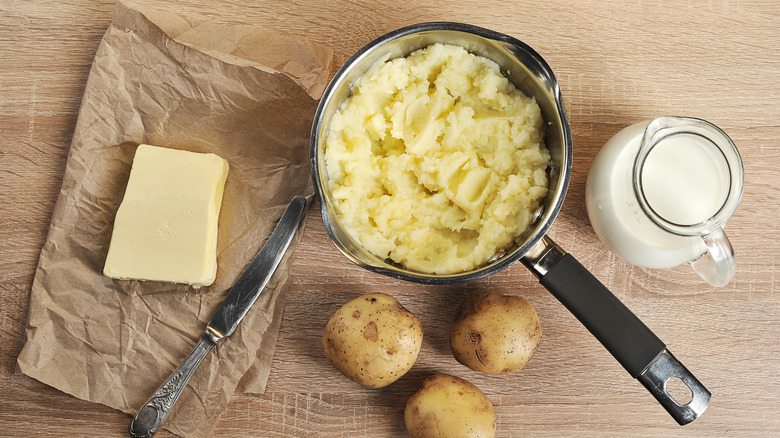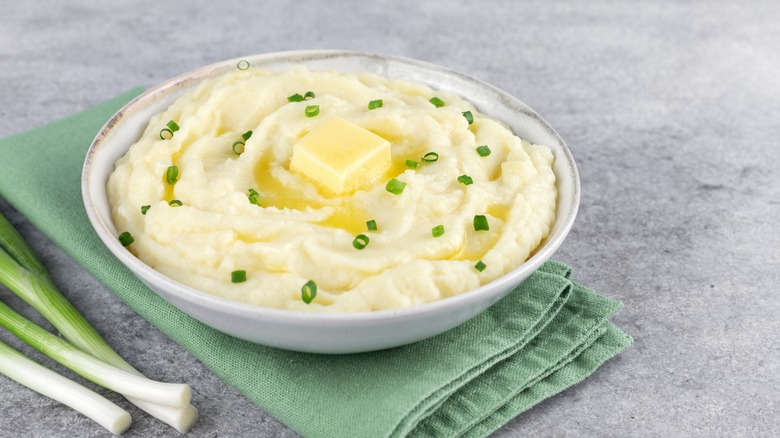Milk Vs Cream: What To Know When Making Rich Mashed Potatoes
Rich, creamy mashed potatoes may steal the show at holiday dinners, but we happen to think they make an easy, crowd-pleasing side for any occasion. Whether you make them a few times a year or once a week, you'll want the dish to be pretty much perfect. That means choosing one of the seven best potatoes for mashing, as well as ensuring you have enough spuds to go around. The best homemade mashed potato recipes also require you to choose between milk or cream as a crucial mix-in. Thankfully, Food Republic had the opportunity to talk to Gail Simmons, who is currently promoting the City Harvest Share Lunch Fight Hunger event in NYC, and she told us that she is partial to milk. Not just any milk, either: "I prefer whole milk for the best mashers," she said.
"Cream is too thick, and any lower fat [milk] can feel watery," the expert continued, adding that lower fat milk can be used in a pinch if absolutely necessary. The key to incorporating milk seamlessly into your potatoes, according to Simmons, is heating it up to barely a simmer; you absolutely do not want to scorch it, so don't leave it on the heat for too long, or use too high of heat. Adding cold dairy to your mashed potatoes is one of the more common mistakes you definitely want to avoid, but burnt milk won't be doing anyone any favors, either.
What to know about reheating mashed potatoes
After making a batch of homemade mashed potatoes, you likely have leftovers to contend with. Once you pull them from the fridge, the best place to warm them up again is actually on the stove. Gail Simmons advised, "Reheat on the stove top at a low [temperature], slowly folding in more butter and milk to rehydrate if needed." That's right, you might still need that milk in the coming days, because the heat from your stove alone can dry out your second-day mashed taters. Be sure to give the mixture a few good stirs throughout the process, so that the bottom part isn't constantly exposed to heat, while the top remains cool.
If you really want to safeguard your mashed potatoes from drying out the second day, you can mimic a double boiler: simply add your leftover contents to a large, heat-safe bowl, then let it sit on top of a pot of boiling water. This will gently reheat the mashed potatoes and reduce the risk of scorching. Whatever method you choose, Simmons also instructed us to remove the mashed potatoes from the stove as soon as they're warmed through, because too much heat — as well as too much stirring — can make your newly reconstituted taters gummy the second time around.


